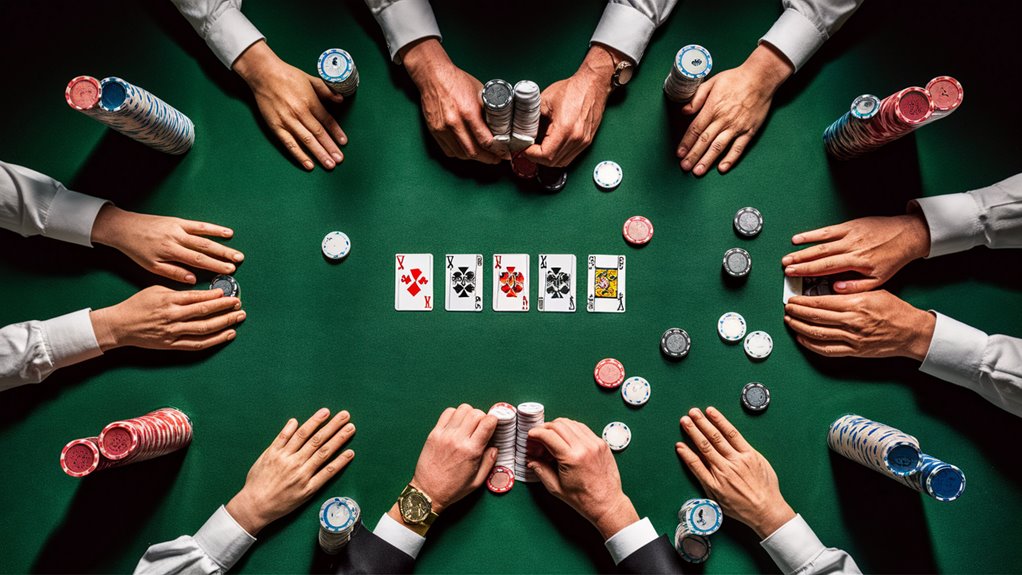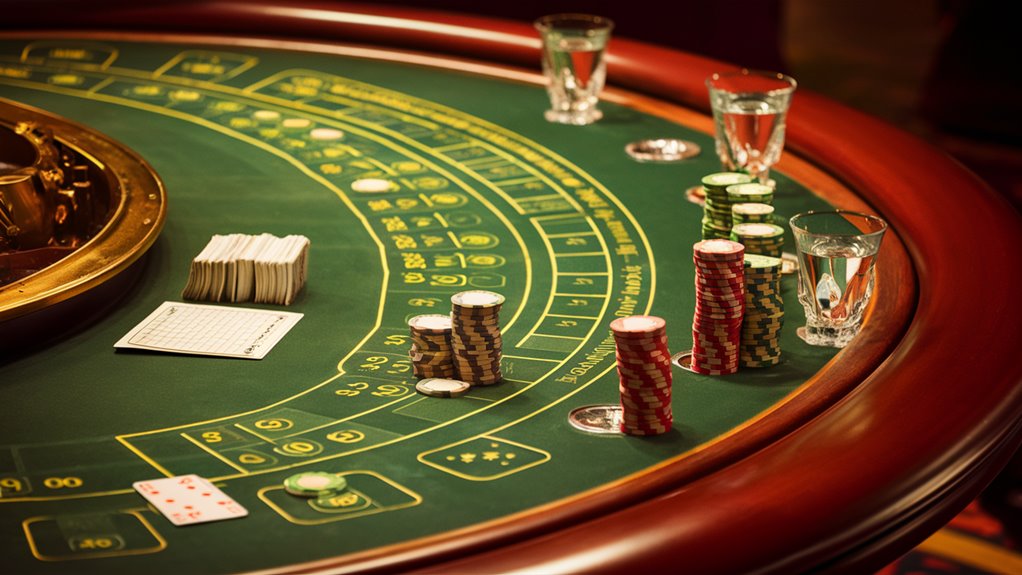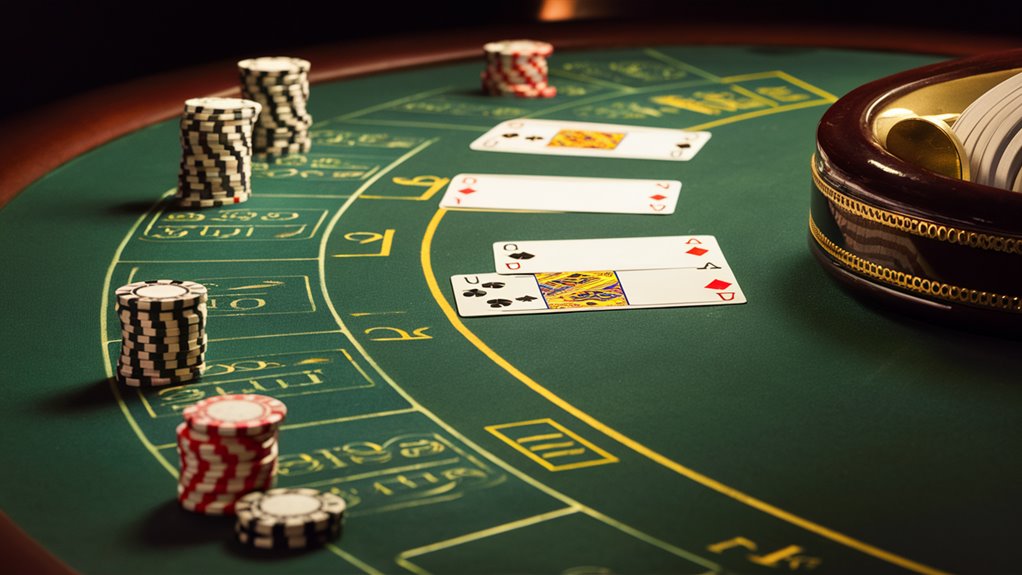The Connection Between Problem Gambling and Depression: A Critical Link
Understanding the Bidirectional Relationship
A powerful, bidirectional relationship is shared between a pathological gambling addiction/gambling disorder and clinical depression. 75% of those with a gambling addiction disorder experience a major depressive episode according to one study. In 76% of people who are problem gamblers, the condition manifests itself as symptoms of depression – thus emphasizing just how closely related these two conditions really are.
Biological Mechanisms and Shared Risk Factors
The connection between a gambling addiction disorder and depression is rooted in complex biological mechanisms. Both conditions disrupt the bodily systems for processing dopamine rewards through neurotransmitter imbalances. Such disturbances, in turn, affect the regulation of mood and executive functions–setting up this dual vulnerability.
The Self-Reinforcing Cycle
Gambling addiction and depression create a vicious cycle where each condition worsens the other:
Withdrawal from social contacts and support networks
Sleep disorderality leading to mental disorders
Out of control material desires
Emotional distress, which affects one’s daily operation
Being unable to see things clearly
Treatment Approaches and Recovery
Evidence-based interventions targeting both problem gambling and depression concurrently produce the best results. Effective treatment protocols include:
Cognitive Behavioral Therapy for both conditions
Medication management of depression eliminates symptoms
Gamblers Anonymous groups offer mutual support to help gamblers recover
Therapies that deal with money-related problems in everyday life
Whole-family therapy attention for support groups
Understanding of this intricate relationship permits healthcare providers to develop more effective treatment strategies that address both conditions, which may improve outcomes markedly.
Understanding the Dual Diagnosis
Problem Gambling and Depression
Problem gambling disorders and clinical depression frequently occur together, presenting a complex double diagnosis that requires special treatment methods. This co-occurrence phenomenon forms a complex web, where each condition reinforces the other, setting up a cycle that is difficult to break free of.
Identifying Key Patterns in Dual Diagnosis
Problematic gambling behavior often becomes a pathological defense against underlying depressive symptoms. The direction of the causal relationship is unclear, and data show that 75% of pathological gamblers will have some form of major depression. Feeling useless and despondent when gambling losses compound the problem only serves to make an already bad mood worse.
Central Neurobiological Mechanisms and Therapeutic Insights
The relationship between gambling addiction and depression is reflected in the central nervous system. Various forms of trauma induced in recognized tournaments or special trek events may further punctuate the transition from gambling to depression.
Sharing Genetic Traits
Common Risk Factors to Be Addressed in Comprehensive Therapy
A comprehensive approach must be taken to address these problems, rather than focusing on only one aspect or the patient’s common treatment responses. High rates of relapse, poor recovery outcomes, increased symptom severity, lengthy recovery times, and resistance to therapy are common.
Dual Risk Factors
Biological and Genetic Risk Factors That Are Common to Problem Gambling and Depression
Two sets of factors increase susceptibility to both gambling and depression: biological and genetic. The risk factors are obvious indeed. People who come from a family where addiction is prevalent and those whose parents are ill are much more likely to have a problem with their genetics than other people. Depression equally has its biological basis, with neurotransmitters in the brain, especially dopamine and serotonin, suffering disruptions simultaneously responsible for changes in gambling behavior and feelings of depression. Disturbances of this kind are often not confined merely to gambling addicts; they are just one subclass of emotionally disturbed people.
Psychological and Trauma-Associated Factors
Trauma and life upheavals often drive people to gamble. Problems such as early childhood trauma and financial ruin may compel them at the same time into both gambling and depressive states of mind. Recklessness and emotional instability are typical accompaniments of the two disorders, while social isolation and difficulties in establishing and maintaining interpersonal relationships serve to bring home this self-destructive circle in another way.
Personality and Socioeconomic Risk Factors
For the twin mental illnesses of gambling and depression, high sensation-seeking behavior and low self-esteem both play a part. Sociopsychologically related factors cannot be overlooked—for example, poverty and joblessness exacerbate the conditions into which these disorders mutate into the extreme. From societal determinant perspectives, these are a set of conditions conducive to generating many different forms of pairwise interrelated phenomena.
Environmental Contributors
The accessibility of gambling venues, internet betting, and the normalization of gambling activities in an environment can further increase risk. Also, pressures from society and peers lead to casual attitudes about gambling, cultural norms that glorify loser mentalities and psychiatric disorders.
Brain Chemistry and Behavior
Neurotransmitter Systems and Dual Disorders
The intricate dance of depression and problem gambling burrows deep into neural mechanisms. Neurotransmitter systems play a crucial role in that one individual. Central to it all is the role of dopamine. Dysregulation leads to cyclical patterns, forcing humans to seek rewards through gambling—and that while gambling ceases to satisfy, nothing still looks good enough for want of more.
Neurochemical Imbalances and Behavioral Effects
Both conditions, gambling and depression, are affected by an imbalance of serotonin and norepinephrine that directly impairs mood regulation and the raison d’etre for life. These neurochemical imbalances weaken impulse control and risk judgment, making the inclination to gamble almost irresistible and thereby strengthening negative cognitive patterns.
Stress Response and Cognitive Function
The brain’s stress response system is affected Cutting Coarse Reels Into Sculpted, Bonus-Filled Landscapes by both the development of gambling problems and depression in patients with these conditions because cortisol rises. Higher stress states damage prefronto-thalamic rhythm disturbances even more severely than what happens after injury from bicycle accidents at the age of seven. It leads to a state in the prefrontal cortex that places conscious choice-making and emotional regulation at risk to such an extent.
The significant neurobiological overlap between these two disorders explains why they often occur together and implies that treatment strategies need to address both conditions simultaneously.
Key Impact Factors:
Neurotransmitter dysfunction
Disrupted reward system
Stress hormone elevation
Impaired information processing
Problems with emotional regulation
Warning Signs and Symptoms
Behavioral Indicators
Problem gambling and clinical depression often occur together, creating distinct profiles of behavior and symptoms. These people usually react adversely to any accompanying loss or failure; social withdrawal is typical of afflicted individuals.
Warning signs that gambling could become a problem include endless preoccupation, bankruptcy, and worrying about rent or mortgage payments. This destructive cycle incorporates a pattern of escalating bets in an effort to recoup previous losses.
Physical and psychological symptoms
Disturbed sleep, increased irritability, and profound changes in appetite perception are common to both conditions. Withdrawal symptoms occur when gambling opportunities are limited, thereby paralleling how someone with depression may begin having withdrawals from the everyday routine.
Follow-up affect of intense guilt, overwhelming shame and abiding hopelessness on departing from gambling.
Problems with health
Prolonged headaches, stomach problems, and extreme fatigue. When gambling debt makes the symptoms of depression even worse, then thoughts or indeed planning for suicide are often not withheld for long. Recognition of these signs should prompt immediate intervention by professionals in the allied fields.
Key Signs of Warning:
Social isolation and lack of stimulation
Mind addiction
Secretive behavior and financial difficulties
Sleep difficulties and changes in appetite characteristics
Physical deterioration
Suicidal thoughts or tendencies
When these warning signs develop, it is crucial to seek professional help as early intervention can prevent a further worsening of both conditions.

Approaches and Strategies for Treatment
Approaches and Strategies for Treating Gambling Addiction and Depression
Integrated management
When these warning signs appear, timely Steering Salty Rival Scenes Into Petal-Like Table Gains intervention with evidence-based treatment strategies is essential. Combining medication management, cognitive behavioral therapy (CBT), and financial counseling offers a multi-modal therapeutic approach to the treatment of gambling and depression.
Therapy/Cognitive Behavioral
Professional financial counseling is key for recovering from gambling addiction and depression. It can implement a structured pay-back schedule that restores personal finances to order.
Treatment progress can also be assessed by means of validated tools, which provide logical feedback to make therapeutic adjustments for optimal outcomes.
Understanding the Connection
Understanding the connection between depression and problem gambling came out in 2002. Gambling addiction and depression interact in a complex cycle; they are not totally separate from each other.
Financial Control and Access Restriction
For those who want to manage their gambling, the invention of smart contracts is a major breakthrough. Another way of self-imposing restraints on Internet betting is to turn the tables and make use of the limitations most residents have over their own country’s web pages in international web hosting companies to their advantage.
Implementing Effective Recovery Strategies
Cognitive-behavioral therapy plays a crucial role in breaking out of the vicious circle that depression and obsessive behavior set up together. Key therapeutic techniques include:
Individual attention to distorted thinking
Healthy coping mechanisms
Building resistance to triggers
Medical Management: Dual Diagnosis Treatment
Latest Developments in Treatment Theory and Practice
Neuroscientific discoveries now enable a considerable interpretative reversal in treatment strategies.
Behavioral Monitoring
Tracking mood patterns and gambling urges helps identify key points in life:
Documenting trigger situations
Recording your emotional states
Analyzing what behaviors come on
Mindfulness Techniques
Using mindfulness-based therapies interrupts reflexive responses:
Present-moment consciousness exercises
Practices to alleviate stress
Ways of regulating emotional state
Through targeted, evidence-based strategy implementations, these pathways that reinforce gambling addiction and depressive symptoms can be effectively weakened to ensure sustained recovery. This is the power and potential of clinically proven treatment methods. Amplifying Dim Scenes for Resounding Table Reversals
Recovery Support Systems
Building Effective Recovery Support Systems: An Introduction to Treatment
Final Thought
Research shows that in order for successful rehabilitation to occur, people need an approach combining professional therapy, peer support groups, and family help. Clinical studies have demonstrated that behavioral therapies, when combined with frequent meetings of Gambler’s Anonymous, can decrease relapse rates to zero in up to 60%.
Pillars of Core Support
Professional Help
Therapists with addiction expertise
Mental health professionals coordinating treatment
Addiction treatment caseworkers
Peer Support Networks
Gambler’s Anonymous meetings
SMART Recovery courses
Group therapy sessions
Family Engagement
Family counseling sessions
Education programs for relatives
Support group involvement by family members
Digital Recovery Tools
The following modern technology can enhance recovery:
Recovery monitoring applications
Online counseling platforms
Self-exclusion program management 안전놀이터
Virtual support-group meetings
Evidence-based Successful Metrics
Research shows that consistent participation in support systems reduces relapse risk by about 45%.
If patients:
Attend regular therapy sessions
Participate actively in support groups
Have families involved in the recovery process
Use digital recovery tools
Have follow-up treatment plans for structured management
These four elements of support combined with interventions place solid groundwork for getting into or remaining in a healthy mental condition.


